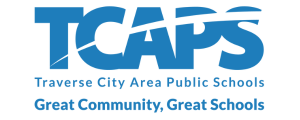Section 504
About Section 504
Section 504 is a part of the Rehabilitation Act of 1973 that prohibits discrimination based upon disability. Section 504 is an anti-discrimination, civil rights statute that requires the needs of students with disabilities to be met as adequately as the needs of the non-disabled are met. Section 504’s purpose is to provide equal opportunity and access.
How does a student qualify for Section 504?
To qualify for Section 504, a student must have one of the following to have protections under Section 504: a physical or mental impairment that substantially limits one or more major life activities; or have a record of such an impairment; or be regarded as having such an impairment.
34 C.F.R. 104.3(j)(2)(i) defines a physical or mental impairment as any physiological disorder or condition, cosmetic disfigurement, or anatomical loss affecting one or more of the following body systems: neurological; musculoskeletal; special sense organs; respiratory, including speech organs; cardiovascular; reproductive; digestive; genitourinary; hemic and lymphatic; skin; and endocrine; or any mental or psychological disorder, such as mental impairment, organic brain syndrome, emotional or mental illness, and specific learning disabilities. The regulatory provision does not set forth an exhaustive list of specific diseases and conditions that may constitute physical or mental impairments because of the difficulty of ensuring the comprehensiveness of such a list.
Major life activities, as defined in the Section 504 regulations at 34 C.F.R. 104.3(j)(2)(ii), include functions such as caring for one's self, performing manual tasks, walking, seeing, hearing, speaking, breathing, learning, and working. This list is not exhaustive. Other functions can be major life activities for purposes of Section 504. In the Amendments Act, Congress provided additional examples of general activities that are major life activities, including eating, sleeping, standing, lifting, bending, reading, concentrating, thinking, and communicating. Congress also provided a non-exhaustive list of examples of “major bodily functions” that are major life activities, such as the functions of the immune system, normal cell growth, digestive, bowel, bladder, neurological, brain, respiratory, circulatory, endocrine, and reproductive functions. The Section 504 regulatory provision, though not as comprehensive as the Amendments Act, is still valid – the Section 504 regulatory provision’s list of examples of major life activities is not exclusive, and an activity or function not specifically listed in the Section 504 regulatory provision can nonetheless be a major life activity.
How do I get my child an evaluation for Section 504?
In order to have your child evaluated for eligibility under Section 504, contact your building principal or the Executive Director of Special Education at (231) 933-1780. The building will gather data from a variety of sources once permission is granted to do so from a legal guardian. The 504 team, including the parent, will determine whether the student qualifies for Section 504 protections as outlined by the above qualifications. If the team determines that the student qualifies, the team will then determine if the student needs a formalized Section 504 plan. The Section 504 plan will outline accommodations, based on the data collected, that would make the educational environment accessible to the student relative to their average peer group.
Is Section 504 the same as special education?
In some cases, students may qualify for Section 504 only under the protections under the law. In other cases, students may qualify for the protections under the law and would need an accommodation plan. The decision is based on data that is collected by the 504 team.
The Individuals with Disabilities Education Act (IDEA) is designed for students who need specialized instruction for a disability. Students would need to also go through an evaluation process and qualify for special education services. However, their individualized plan would include specialized instruction, not just simply accommodations. Specialized instruction is based on where the student qualified for services. Services can include the following but are not limited to:
-
Resource Room Support
-
Speech and Language Therapy
-
Physical Therapy
-
Occupational Therapy
-
Social Work Therapy
To learn more about the difference between Section 504 and IDEA, please refer to this flow chart.
More Information About Students with Disabilities
For more information regarding students with disabilities, please contact your child’s principal or the 504 Compliance Officer for Traverse City Area Public Schools, Tiffany Pomaville at 231.933.1780.
